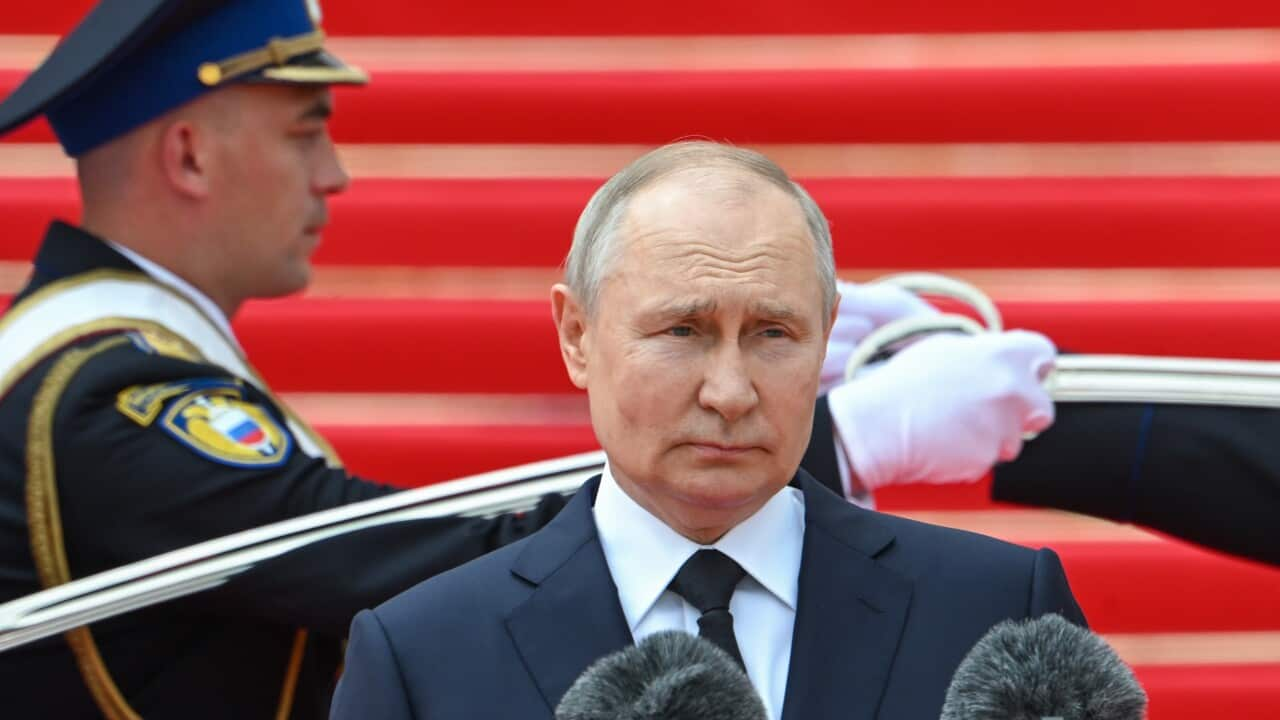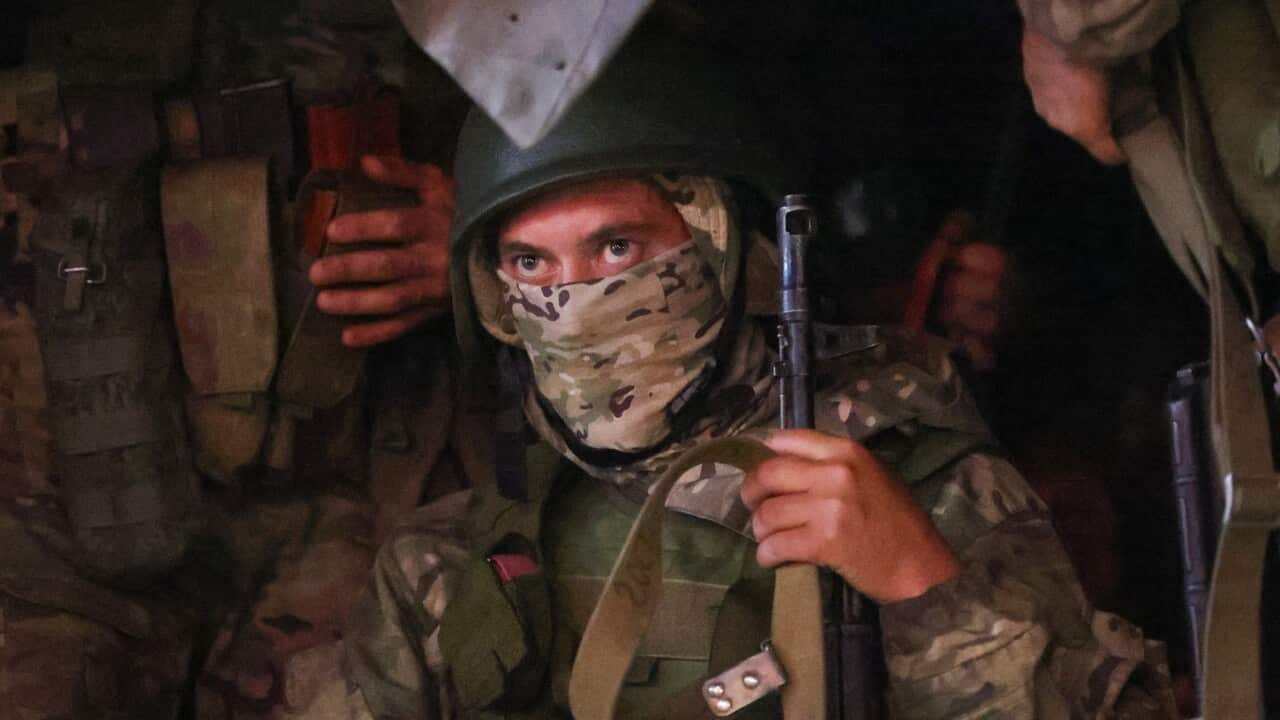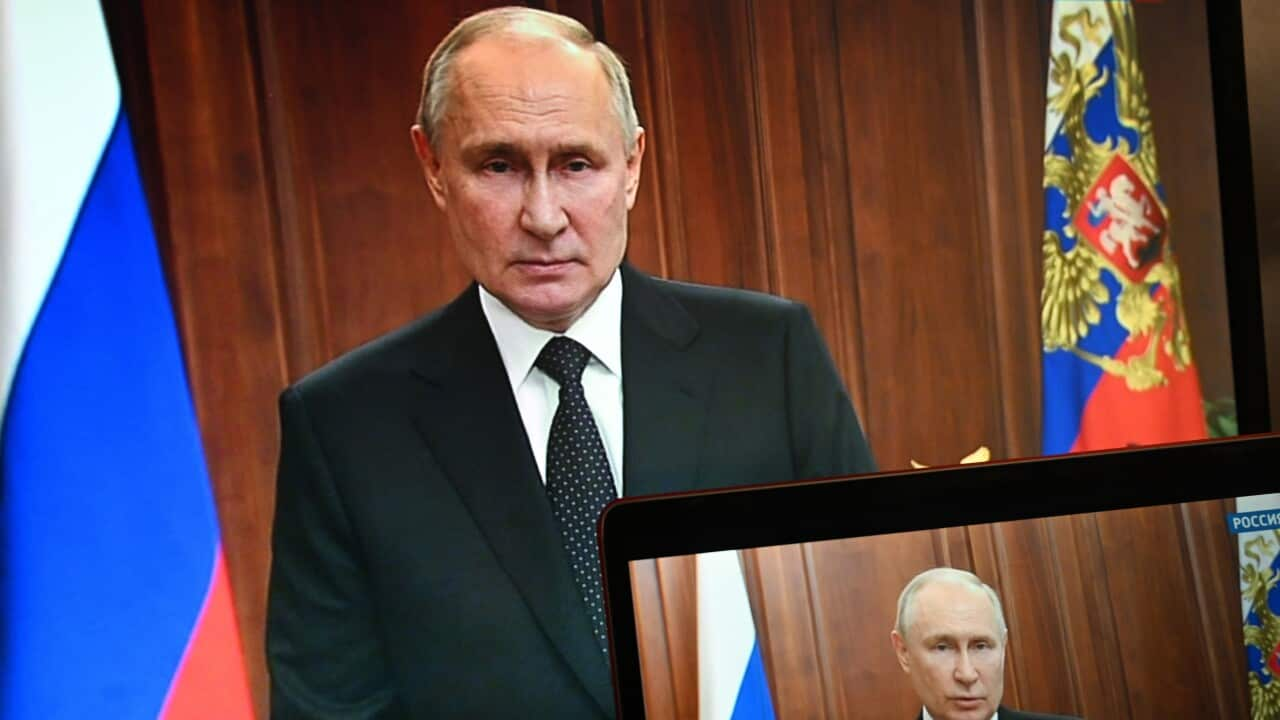Russia's regular army was preparing on Tuesday to take over military hardware belonging to the Wagner mercenary group, which staged an armed rebellion over the weekend.
"Preparations are underway for the transfer of heavy military equipment from the private military company Wagner to units of the Russian armed forces," the defence ministry said in a statement online.
On the same day, Russia's FSB security services announced that it was dropping a case against Wagner group fighters.
"The criminal case open over the armed uprising by the private military company Wagner has been closed," the FSB said in a statement carried by Russian news agencies.
Russia's President Vladimir Putin praised members of Russia's military and security forces in a ceremony on Tuesday, telling some 2,500 security personnel mustered on a square in the Kremlin complex that the people and the armed forces had stood together in opposition to the rebel mercenaries.
He was joined by Defence Minister Sergei Shoigu, whose dismissal had been one of the mutineers' main demands.
Vladimir Putin's ultimatum to Wagner group fighters
Mr Putin had earlier warned that fighters employed by Wagner could join the regular military or leave for Belarus.
"Today you have the possibility to continue serving Russia by entering into a contract with the ministry of defence or other law enforcement agencies, or to return to your family and close ones ... Whoever wants to can go to Belarus," Mr Putin said.
“I made steps to avoid large bloodshed. This needed time including letting those who made a mistake change their mind and see the consequences this will lead to,” the president added.
He made no mention of mercenary chief Yevgeny Prigozhin, who led the mutiny.
What did the Wagner mercenaries do?
The Wagner Group is a Russian paramilitary organisation that has been a key military component of the Russian invasion of Ukraine, well known for its offensive on the eastern Ukrainian city of Bakhmut.
Over the weekend, the mercenary fighters surged most of the way to Moscow in what Mr Prigozhin called a "march for justice" after claiming the Russian military killed 30 of his fighters in a missile strike on a Wagner camp. He has not provided evidence of these claims.
The mercenaries reportedly captured key Russian military strongholds in the Russian cities of Rostov and Voronezh before Mr Prigozhin turned his forces around after striking a deal with President Putin, the details of which are still unknown.
Prigozhin denied attempts to overthrow Putin
Yevgeny Prigozhin is now claiming the one-day mutiny had been intended not to overthrow Russia's government but to register a protest over what he said was its ineffectual conduct of the war in Ukraine.
In his first public comments since ending the mutiny late on Saturday, he said Wagner stopped its advance towards Moscow at the moment when they realised that they would have to confront waiting Russian troops, saying “we did not want to shed Russian blood."
Regarding a military order that Wagner fighters place themselves under the control of Russia's Defence Ministry, he said fewer than 2 per cent of Wagner's men have signed up so far.
Joe Biden said the US and its allies were not involved
Russian intelligence services were investigating whether Western spy agencies played a role in the aborted mutiny, the TASS news agency quoted Foreign Minister Sergei Lavrov as saying on Monday.
President Joe Biden said on Monday that the brief uprising was part of a struggle within the Russian system and that the United States and its allies were not involved in it.
"We made clear we were not involved, we had nothing to do with this," Mr Biden said in his first comments on the Wagner uprising.
Mr Biden's message was sent directly to the Russians through various diplomatic channels, White House national security spokesperson John Kirby told reporters.












